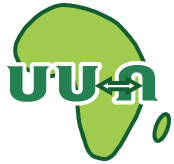“Integration of Advanced Agri-Science and Agribusiness to Contribute to SDGs” was selected for the Sakura Science Exchange Program (https://ssp.jst.go.jp/en/) offered by the National Science and Technology Agency (JST), and nine short-term students from Jomo Kenyatta University of Agriculture and Technology (JKUAT) came to Japan in March 1-10. The students were led by Ms. Naomi Chelimo Ketter. Invited students were selected for UU-A “Global Management 2023” with outstanding results, and the schedule was as follows.
Feb. 29 (Tue): Departure from Nairobi.
Mar. 1 (Fri): Arrival at Narita Airport.
2 (Sat) AM: Orientation and Introduction of Utsunomiya University by the Dean of School of Agriculture, Prof. Yamane.
2 (Sat) PM: Visit the Center for Bioscience Research and Education to see state-of-the-art genetic analysis equipment, genetically modified fish, and so on.
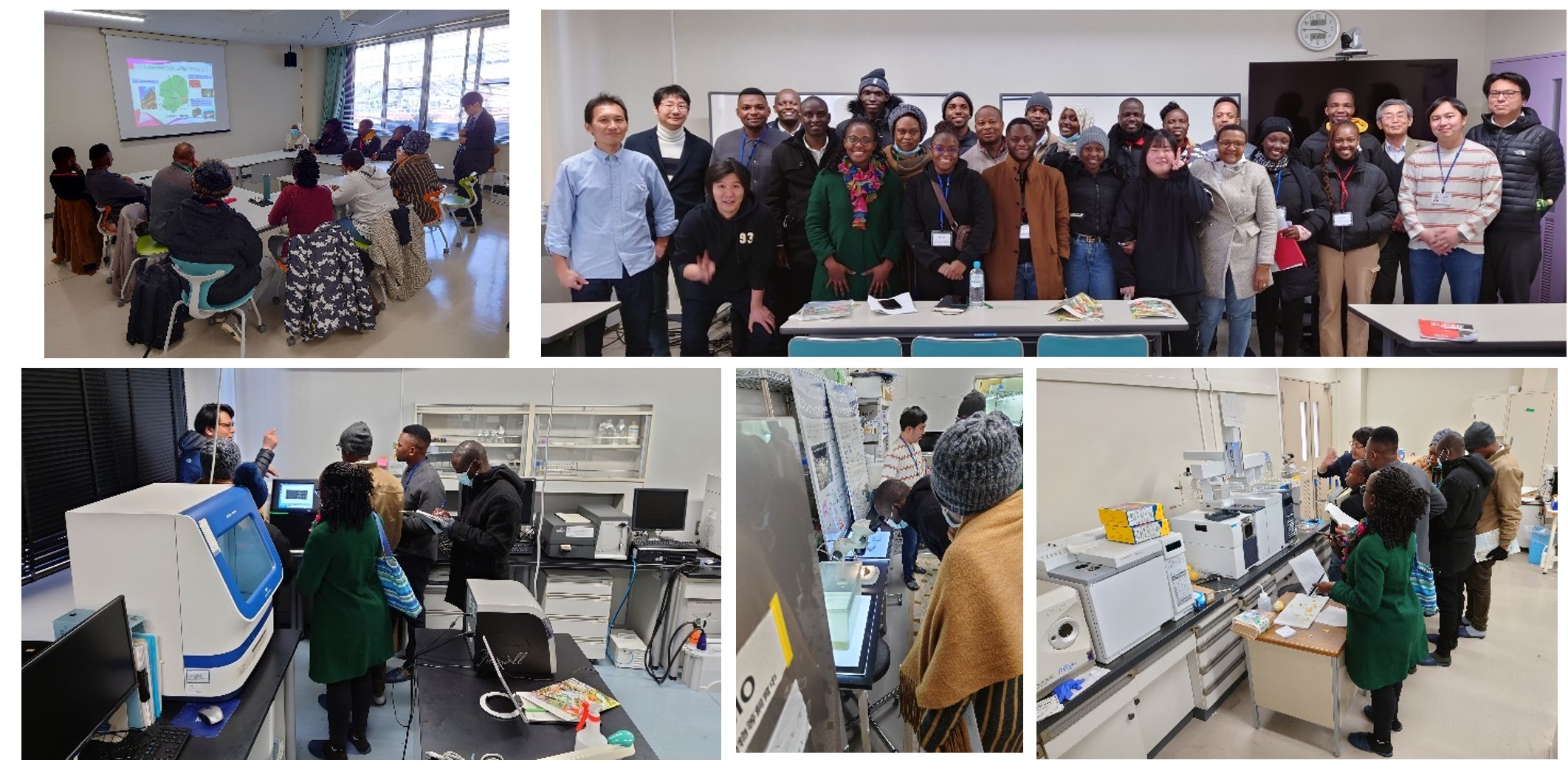
3 (Sun): Visit the Experimental Forest attached to the School of Agriculture.
Lecture ‘Sustainable forestry production at Utsunomiya University’ by Dr. Oshima. And then visited the frontline of agribusiness. Visit the Toshogu Shrine in Nikko, learned about Japanese history, nature and about collaboration between tourism and agriculture.
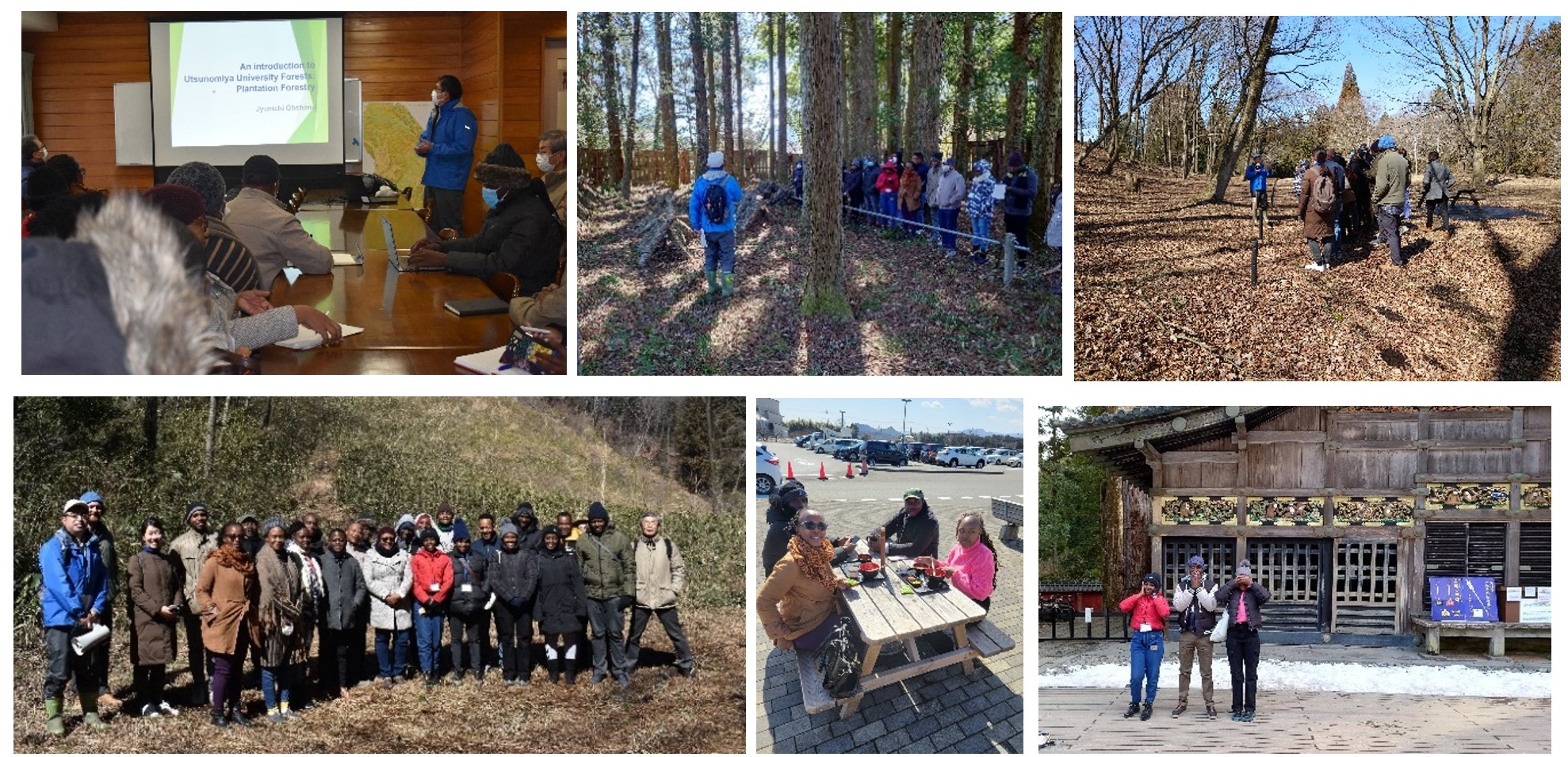
4 (Mon) AM: Administrative procedures. And then the lecture ‘Genome editing and breeding of crops’ by Dr. Kurokura.
4 (Mon) PM: Experiment ‘Measurement of nutritional components of tomato fruits’ to find out whether the nutritional components of genome-edited tomatoes and their original varieties have really been improved.
4 (Mon) Evening: Student Summit 2024 Opening Ceremony and Workshop

They attended a lecture on genome editing by Dr. Kurokura, and confirmed that the content of GABA is more than 10 times higher in genome-edited tomatoes.
5 (Tue) AM: Visit the Utsunomiya University Farm and attend a lecture by Dr. Ikeda.
5 (Tue) PM: Experiment ‘Investigation of onion growth and analysis of gene expression’ to test expression of genes involved in onion enlargement.
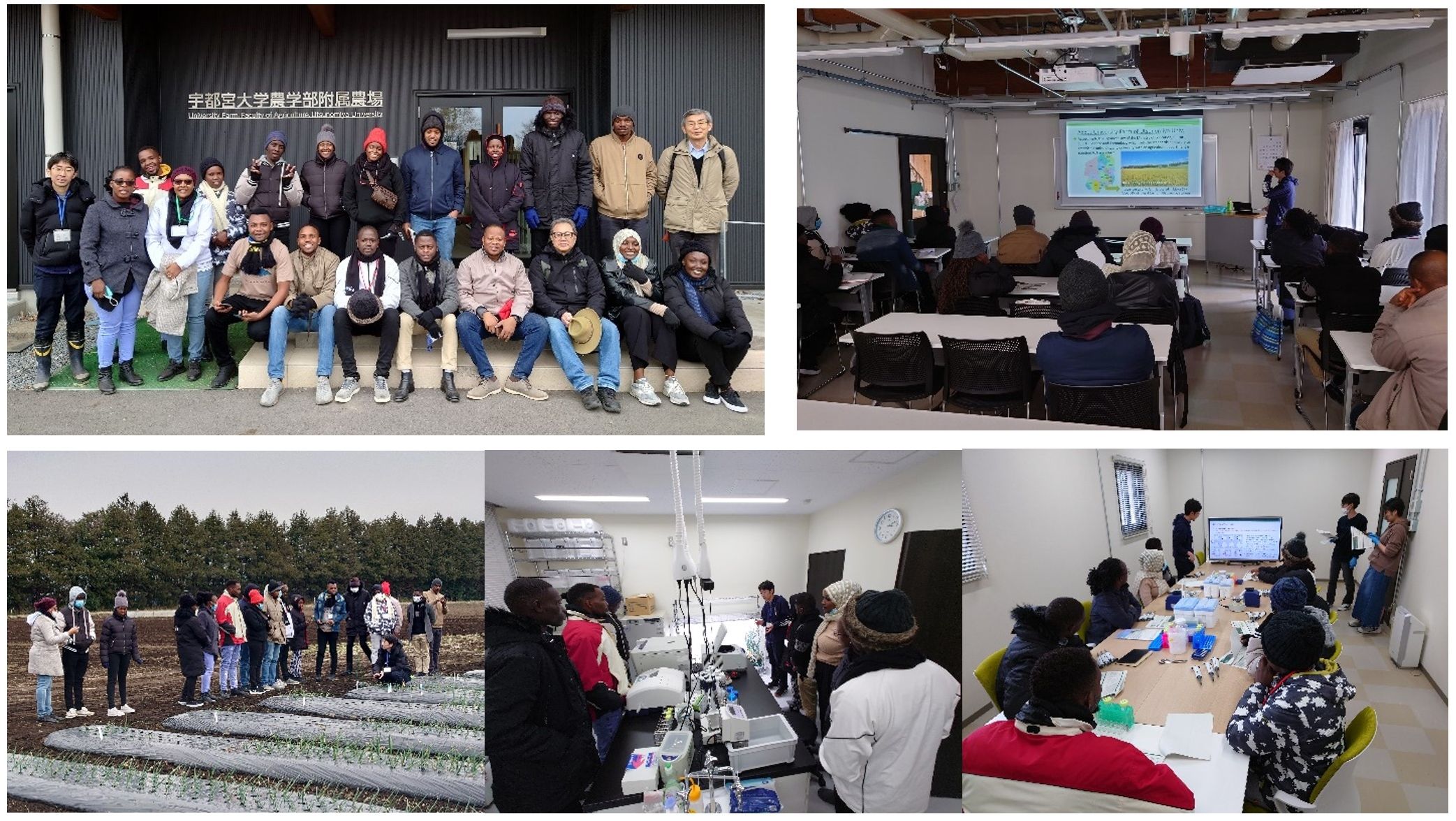
6 (Wed) AM: Meet the President.

6 (Wed) AM: Lecture ‘Diagnosis and detection of plant diseases’ by Dr. Neriya.
6 (Wed) PM: Experiment ‘Detection methods for plant viruses’ to detect cucumber mosaic virus using RT-PCR and viral protein detection methods.

7 (Thu) AM: Lecture ‘Development of vaccines to control crop diseases’ by Prof. Natsuaki.
7 (Thu) AM: Lecture: ‘Agricultural arthropod pests showing resistance to pesticides and their management using natural enemies ‘ by Prof. Sonoda.

7 (Thu) PM: Experiment ‘Detection of plant virus RNA and onion mRNA’.

8 (Fri): Invited JKUAT students summarized the content of the training up to that point and prepared Power Point files for presentation at the “Wrap-Up Meeting of the Sakura Science Program”. Also, attended Student Summit 2024 Closing Ceremony and Awards Ceremony.
●Video of the presentation of the wrap-up meeting HERE
●PDF of the PowerPoint presentation of the wrap-up meeting HERE
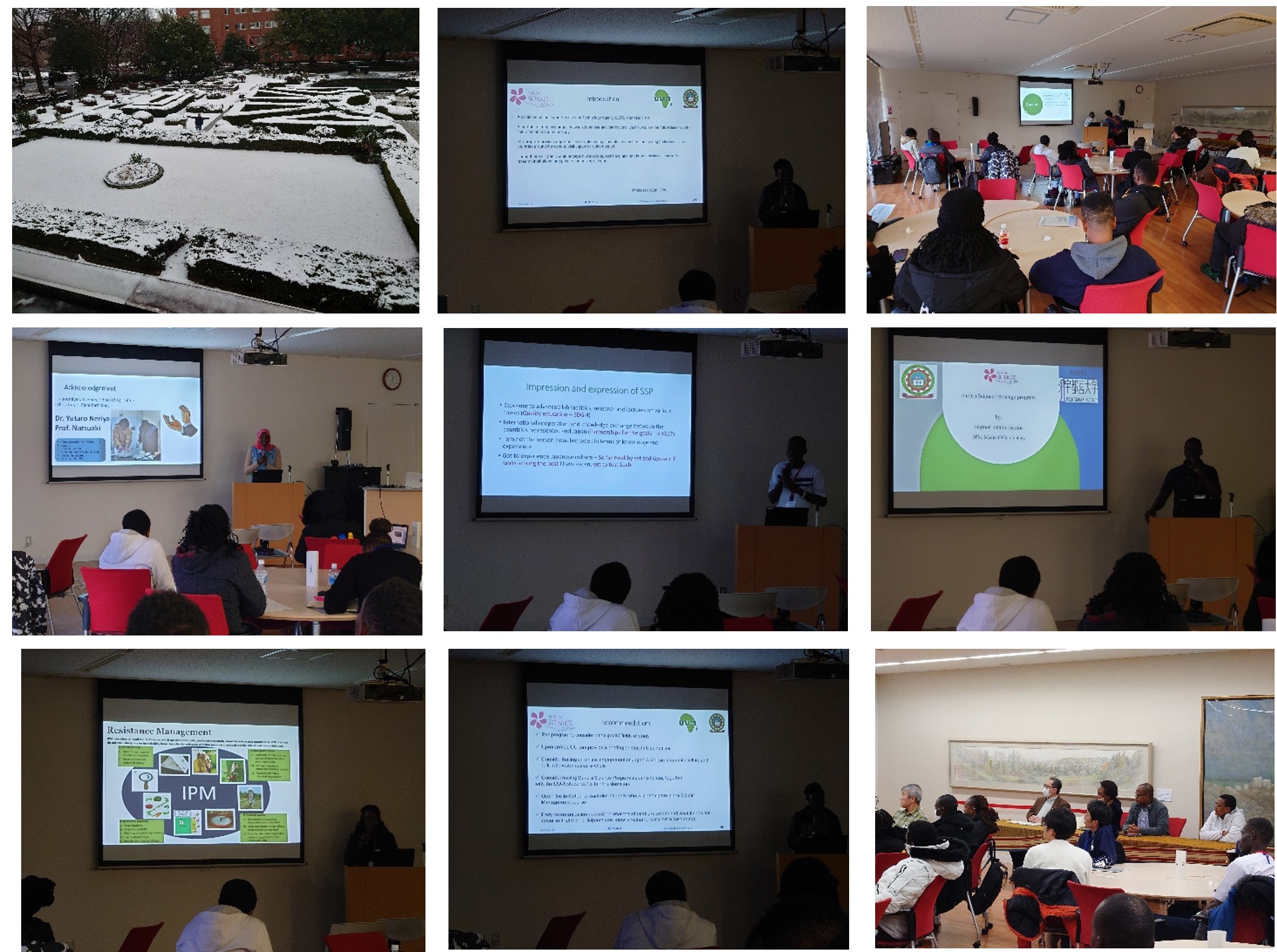
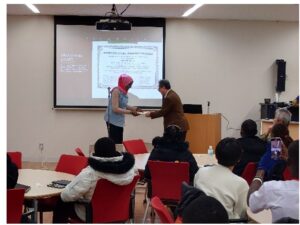
On Friday 8 March, the campus was covered with a light dusting of snow from the previous night, and students who arrived early in the morning were able to enjoy the snowy scenery. In the afternoon, there was a debriefing session on the results of the Sakura Science Program and the closing ceremony of the Student Summit 2024, where JKUAT students presented their experiences at Utsunomiya University. One JKUAT student was also awarded the prize for the best presentation at the “Student Summit 2024” and gave a speech.
9 (Sat) AM: Visit the Agri-Station Seiwa to learn state-of-the-art horticulture facilities and agriscience.
9 (Sat) PM: Visit the Mashiko Strawberry Farms to learn about the agribusiness that combines strawberry cultivation technology and tourism in Tochigi Prefecture.
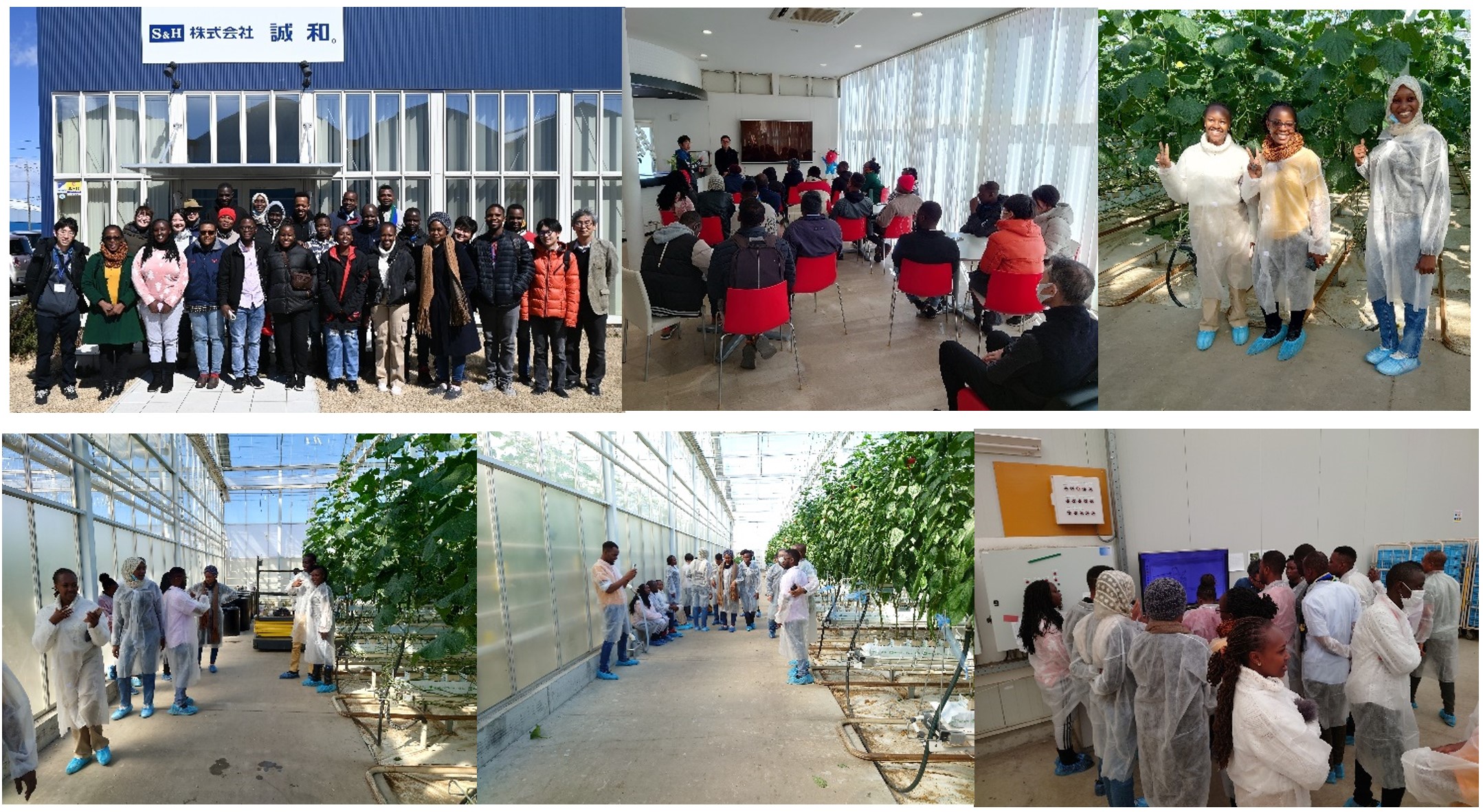
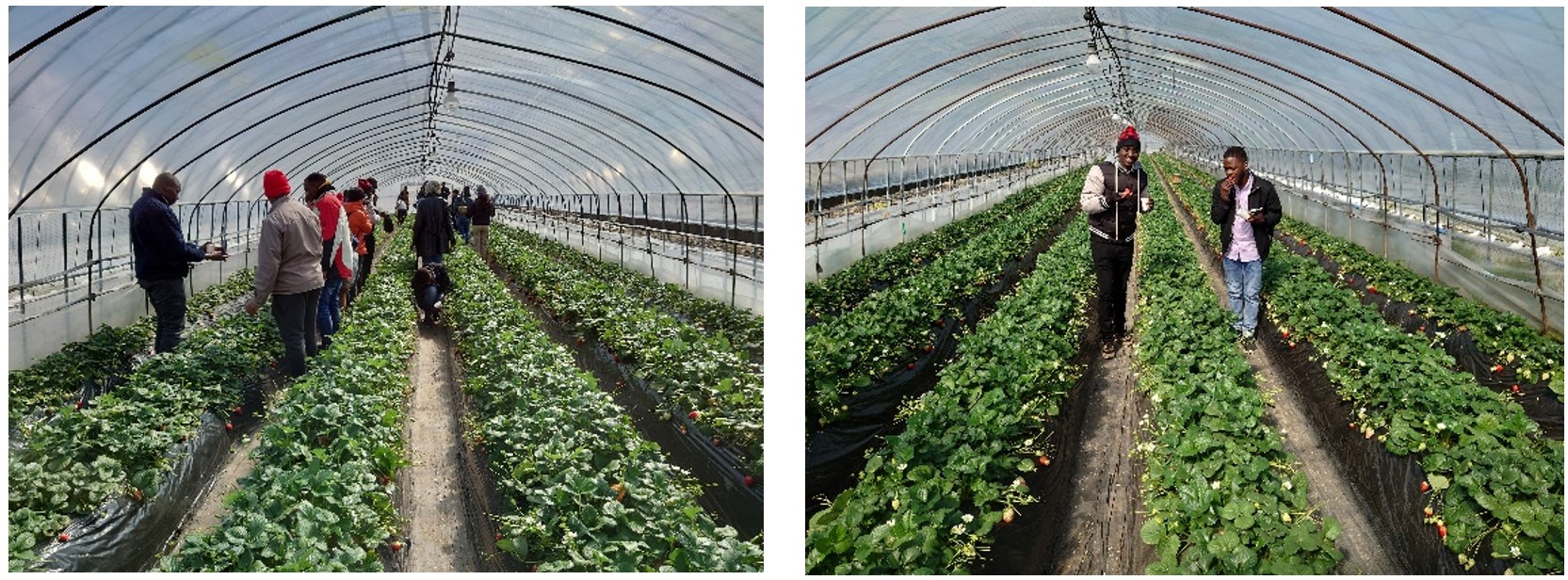
10 (Sun): With UU-A three invited faculty members, 9 students and Ms. Naomi Chelimo Ketter of Sakura Science Program moved to Tokyo, visited Miraikan (National Museum of Emerging Science and Innovation). And then transferred to Narita Airport.

